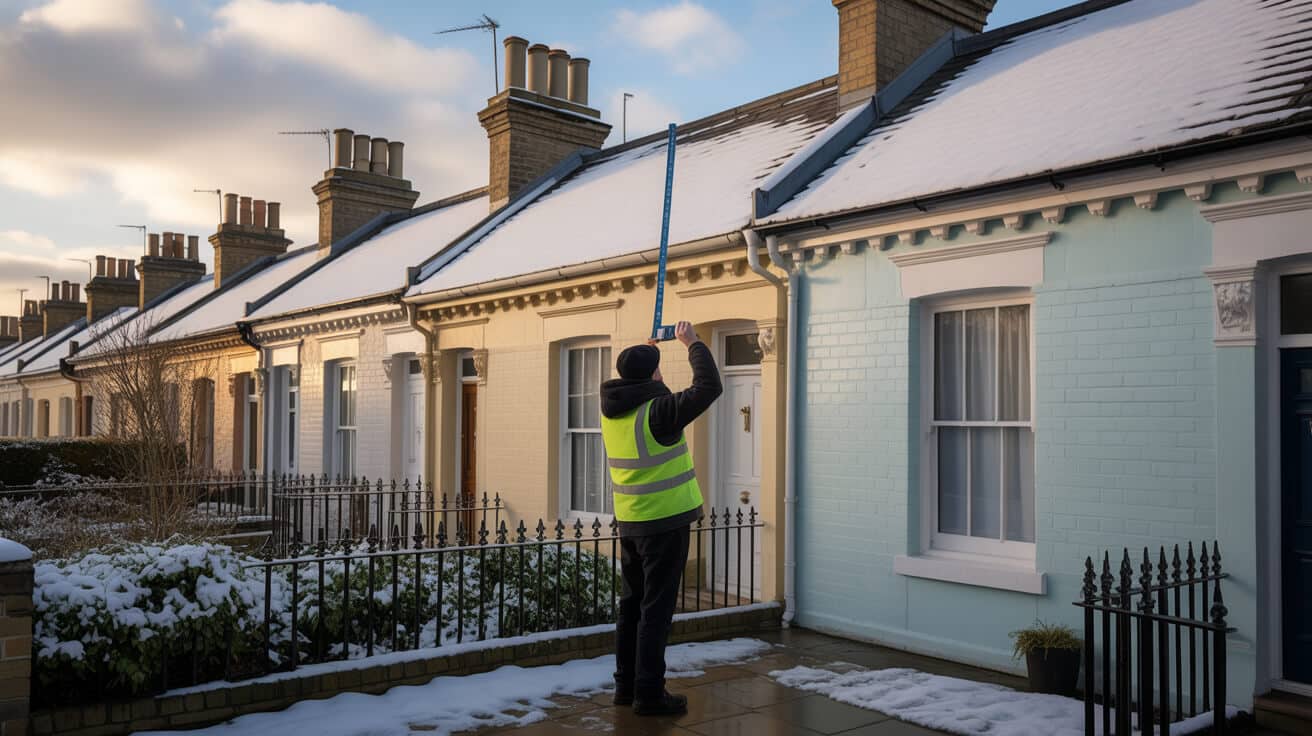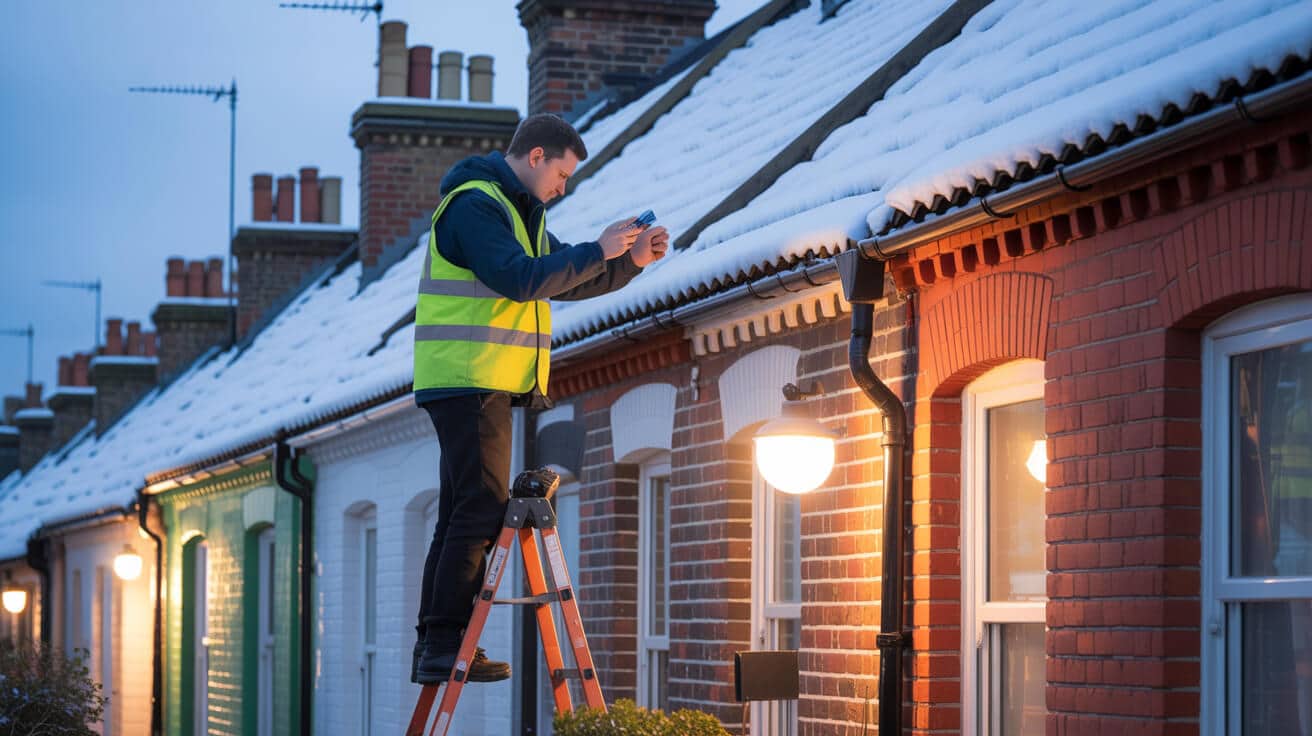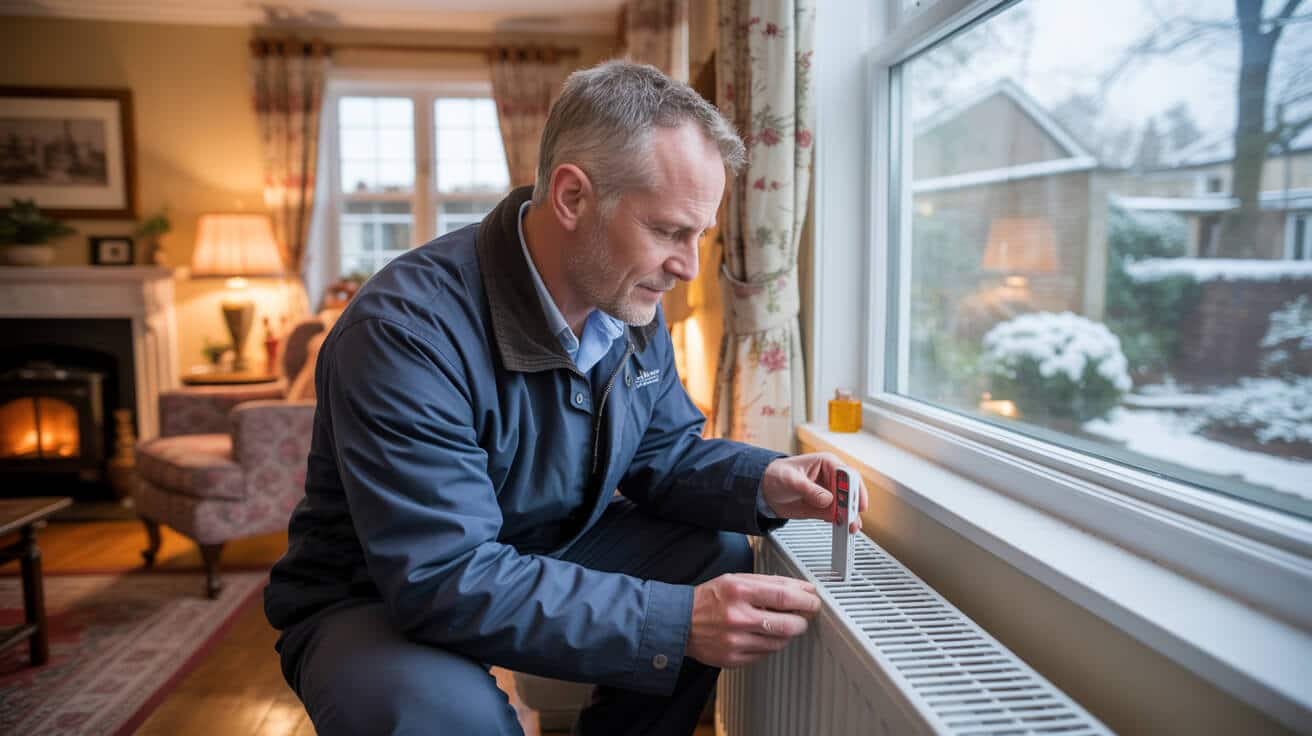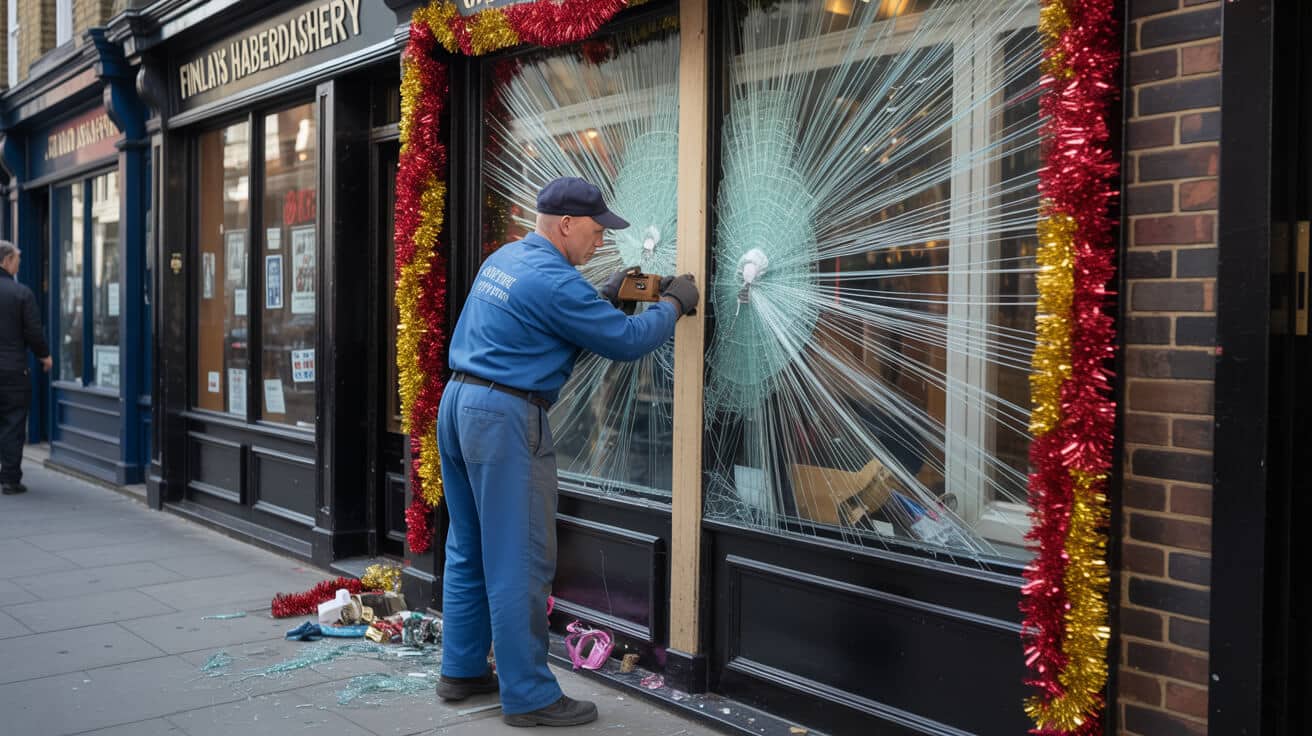 A Landlord’S Guide To Holiday Season Emergencies Preparing For Tenant Calls
A Landlord’S Guide To Holiday Season Emergencies Preparing For Tenant Calls

How Do UK Landlords Survive the Holiday Emergency Season Without Losing Sleep (or the Law)?
Every landlord dreads the phone vibrating at 11pm—especially just after temperatures drop, the roads ice over, and “the office” is now a call centre in someone’s guest room until January. Winter emergencies for UK rental property aren’t just seasonal headaches; they can blow up into legal, reputational, and trust nightmares. Missing a single call or failing to act fast enough—especially around Christmas—can cost far more than a temporary boiler fix.
Speed and accountability are what separate the landlords tenants brag about from the ones they warn each other to avoid.
We’ve entered a new era where responsiveness isn’t just a box for compliance; it’s the main lens tenants use to rate, review, and renew your property. The legal bar is set higher than ever—but it’s the day-to-day, ice-on-the-inside-of-the-window reality that shapes your reputation. Facing this season properly isn’t about fearing fines; it’s about showing your tenants and the council you run a business, not a gamble.
Section Preview
- Your legal responsibilities for winter emergencies: what’s non-negotiable.
- The actual emergencies that spike over the holidays—and why holiday timing changes the risk game.
- The checklist that earns you sleep, not just “evidence for insurers.”
- How maintenance, documentation, and fast communication can halt disasters—or turn routine leaks into legal landmines.
- Why specialist partners like All Services 4U make you the landlord of choice in a crisis.
- Your single best move: grab Hector Gauge’s zero-fluff winter action plan to keep you on the right side of the law, the client, and the contractor queue.
What Legal Firepower Must Landlords Bring to Winter Emergencies?

When pipes freeze or boilers wheeze just as the holidays land, the legal gap between “intent” and “action” is measured in hours, not days. You are obliged to keep properties habitable—full stop. That’s in the Housing Act 2004, Landlord and Tenant Act 1985, and the ice-cold fine print every letting agent gets grilled on after a council inspection.
When tenants lose heat or water in a freeze, you aren’t measured by business days. You’re measured by how fast you stop the discomfort and risk.
This isn’t about seasonal goodwill. It’s about traceable duty-of-care:
- Immediate, traceable response required: 24 hours or less for urgent health or safety repairs (heating outage, major leaks, gas, electrics).
- Routine issues escalate fast: What was “fix by next week” in July is “fix tonight or pay the council’s bill” in December.
- No loophole for bank holidays: Christmas Eve, Boxing Day, and New Year’s are legally the same as Mondays—if the property is uninhabitable, you must act *(Shelter UK, 2024)*.
Authority Fines, Reputations Shattered
Ignore the standards and you’ll face:
- Emergency repair costs, jacked up by local authorities.:
- Fines starting at four figures—for first offences.:
- Compensation claims from tenants—and no insurance sympathy.:
- Licences revoked for repeat failures or “systemic neglect.”:
A proactive, documented plan is your only shield. Smart landlords—respected by tenants—show readiness, not reactivity.
Where Do Most Landlords Fall Down During the Holiday Rush?

The emergencies don’t hit in neat, manageable order. They arrive in packs and are often hidden in last month’s “routine issues.” Family gatherings, extra electrical loads, arctic weather—all increase property stress. Every delayed “minor” fix can snowball into a headline event during office shutdowns.
Holiday season catches you where you slack on maintenance—not just where the weather is coldest.
The top 5 holiday property emergencies:
1. No Heating, Dead Boilers
- Properties can become uninhabitable—and legally non-compliant—fast.
- Frozen pipes are an immediate threat—flood risk doubles if heating goes, especially at night.
2. Burst Pipes and Water Leaks
- One “split” pipe can destroy kitchens in minutes, damage wiring, and force insurance claims.
- If the leak makes the property unfit to occupy, you must act—now.
3. Blocked Gutters and Roof Leaks
- Heavy rain, ice and snow find every weakness. Overflow can damage structure and electrics.
- Early warnings missed become full-blown emergencies by Christmas.
4. Electrical Surges and Faults
- Extra gadgets, Portable heaters, and Christmas lights overload sockets.
- Outages and fire risk spike—the council will use this as evidence of neglect if the worst happens.
5. Drain Blockages and Backups
- Fat, food waste, and storm debris block water flow just when access to plumbers dries up.
Heating and hot water failures are emergencies when tenants lose essential living functions—especially in winter. *(Shelter UK, 2024)*
The reality: most emergencies start as “ignore it until after the holidays.” The professional landlord plans, checks, and logs every key risk before the first cold snap.
What Should Your Pre-Holiday Maintenance Checklist Really Look Like?

Your insurer doesn’t care that you “intended” to check the gutters—only that you did, and proved it. The regulatory shield isn’t charisma or chat; it’s a detailed, timestamped, photo-backed pre-winter checklist. Think asset protection, not paperwork for the sake of it.
A blank checklist leaves you exposed; a completed log is your legal armour when the council or tenant calls.
Essential Pre-Winter Tasks for Every Landlord
1. Roof and Gutter Inspection
- Look for slipped tiles, blockages, and leaks—first freeze compounds all issues.
2. Damp and External Wall Check
- Hunt for cracks or budding damp—the smallest flaw lets winter in.
3. Heating System Service
- Qualified engineer, full test, and logged thermostat check.
4. Pipe Insulation
- Any unheated space—loft, garage, external walls—lag with foam or insulation sleeves.
5. Weatherproof Windows and Doors
- Confirm seals, fix draughts, fill gaps.
6. Smoke & CO Alarm Test
- Replace batteries, log units’ serials, photograph.
7. Tenant Shut-Off Knowledge
- Confirm tenants know location and operation of stopcock, gas lever, consumer unit.
8. Drains and Gulleys Flow
- Slow water means a risk—prioritise clearing to avoid backup disasters.
Digital Platforms = Double Protection
Inflate your legal safety net by:
- Storing checklists plus photos: in the cloud.
- Recording date, person, and outcome: for all key checks.
- Having everything ready for “fit for renting” compliance or deposit disputes *(Landlord Vision, 2024)*.
You can’t control the weather. You can control your evidence.
Why Are Early Servicing and Preemptive Checks a Gamechanger?

A landlord’s reputation—and legal safety—rises or falls on proactive care. No one remembers an uneventful winter; everyone remembers Christmas shivers or a New Year’s Day flood. Contractor rosters fill fast, so leaving checks to “next week” can leave tenants adrift and you at the mercy of emergency callout fees.
The difference between protected and proud and caught and cited is proactive certification—documented, booked, and done before the rush.
Bookings and Checks You Can’t Skip:
- Boilers need annual service: by Gas Safe, with certification. No corners or “DIY hacks” pass in court.
- Radiators and valves bled, thermostats tested: —every room, every zone.
- Pipe lagging in cold spots: ; check for leaks, corrosion, or suspicious marks.
- All drains checked for flow, cleared as needed: , including external gulleys.
- Smoke and CO alarms tested, expiry dates checked, results logged and photographed.:
Boiler services and pipework checks before winter prevent emergencies and protect tenant safety. *(No Letting Go, 2024)*
Boom: contractors are booked by the first week of December. Move early, and emergencies become manageable—not unmanageable.
How Do Top Landlords Turn Tenants Into Crisis-Proof Partners?

Waiting for tenants to alert you to disaster signals is like waiting for smoke to tell you where the fire started. Signed contracts won’t unblock a drain at midnight—or stop a tenant panic when the heating goes. Leading landlords don’t just prep properties; they prep the people living in them.
Uncertainty causes most after-hours calls. Give tenants clarity before they ever need to pick up the phone.
Transformative Tenant Comms
- Create a “fridge list” (digital and paper): all essential emergency contact details, everywhere tenants look.
- Set real-world expectations: Clarify what’s a true “emergency,” what’s not, and what seasonal response times look like.
- Teach micro first-aid for property systems: Shut-off points for water, gas, main electrics. Visual walkthrough—video if possible.
- Clarify “who to call, for what”: Don’t leave tenants guessing.
- Explain legal access for emergencies: So tenants aren’t surprised when a locksmith is called in.
Pre-holiday communication slashes panic and keeps both tenants and landlords out of crisis mode. *(Casa Property, 2023)*
Invest 15 minutes now, and tenant calls drop, stress falls, and your reviews glow from “responsive and helpful” to “never left us in the cold.”
What’s the High-Performance Protocol When an Emergency Call Hits at 2am?

Crisis? Protocol wins. When the phone rings after hours—especially over Christmas—your response defines you. This is where professional landlords outshine “off-duty” types. Process kills panic, every time.
The best landlords answer calmly, act fast, and keep everyone in the loop—even when their own plans are on hold.
The Emergency Call Playbook
- Stay calm and collect information. Don’t let tenant anxiety trigger yours.
- Coach immediate safety actions: Isolate water, gas, electricity—only if it’s safe and within ability.
- Log every step in real-time: Details, advice given, next actions. Every note can save you in a dispute.
- Call qualified help—fast: Prefer pros who offer emergency or holiday cover.
- Update tenants proactively: A “waiting for plumber, will text with ETA” message can halve follow-up calls.
- Follow up post-fix: Ensure resolution, check satisfaction, log outcome for your records.
Prompt, transparent communication and 24-hour attendance is a legal and reputational necessity. *(LBHF Council, 2024)*
Rapid, friendly, and fully documented—those are your watchwords.
How Do Documentation and Debrief Set You Up for Next Year’s Win?

Every holiday season is a built-in audit of your systems. Weaknesses get exposed; strengths are confirmed. The professional landlord turns every incident into an upgrade.
Documentation isn’t just for disputes—it’s evidence of your professionalism and a springboard for smoother winters ahead.
How High-Trust Landlords Close the Loop
- Log every event: date, time, cause, repair, who attended, tenant feedback.
- Digitise everything: Cloud systems → photos, receipts, WhatsApp records all become retrievable evidence.
- Ask tenants, “How did we do?”: Their answers are your preventive roadmap.
- At year-end, review for patterns: Recurring issues get schedule tweaks, not just quick fixes.
- Feed changes back to tenants: “Based on last year, we now check X monthly”—shows progress and breeds loyalty.
A strong documentation trail makes dispute resolution simple and helps avoid repeating past emergencies. *(Total Landlord Insurance, 2024)*
Landlord legends aren’t just made in crisis—they’re made in how you learn from it.
Why Partnering with All Services 4U Changes the Whole Game
Let’s face it—even the best checklist can’t stop every Christmas Eve disaster, nor will every plumber answer their phone at 3am. That’s why elite landlords have a backup that never sleeps or hits voicemail.
All Services 4U is your holiday cover:
- 24/7 emergency access to certified engineers: —boilers, electrics, security, locks, everywhere in the UK.
- One-call, all-trades cover: —no calling five numbers to chase “the right team.”
- Proactive pre-season packages: —book checks in autumn, reserve callouts for December/January emergencies.
- Compliance guaranteed: for every job—meet UK law, avoid legal tripwires.
- Instant digital documentation: —every intervention logged, so you’re always audit-proof.
All Services 4U takes the seasonal strain, letting landlords focus on their tenants—not trade rosters.
Skip the waiting game, keep tenants secure, and let your reviews become “never had a problem, even at Christmas.”
Download the Holiday Emergency Checklist — Keep Chaos Out and Peace In
You don’t need to guess your way through winter, gamble on contractor luck, or wait for the next crisis. Hector Gauge and All Services 4U have built the Holiday Emergency Checklist—your step-by-step guide, ready to cut stress before it starts.
What’s Inside?
- Point-by-point inspection routine: for boilers, roofs, pipes, alarms—no blockers, no missed steps.
- Plug-and-play tenant comms templates: for WhatsApp, email, even fridge printouts.
- 24/7 emergency contact sheet: and reporting flow.
- Troubleshooting grid: for common issues—empower tenants to act, not panic.
- Reminders for your legal duties,: with plain-English do/don’t callouts.
- Review tracker: —improves your system year-on-year.
Ten minutes now will save you hours—and possibly thousands—by Christmas.
[Download your free Holiday Emergency Checklist]
Sleep easy knowing Hector Gauge and All Services 4U are your partners—every night, every holiday, every emergency.
Frequently Asked Questions
What immediate repair responsibilities do UK landlords face during Christmas and New Year?
Landlords in the UK have an unbroken legal and ethical duty to respond to property emergencies—even during Christmas, New Year, or any public holiday. A landlord’s absence, travel, or seasonal closure cannot excuse slow action on major issues like failed heating, flooding, a dangerous electrical fault, or lost property security. By statute, these are “urgent” faults requiring response as fast as possible—often within 24 hours. Insurers and councils expect this rapid action regardless of the date, and a delay could result in enforcement action or invalidate your policy.
Which Christmas emergencies demand urgent landlord action?
- Loss of heating or hot water during cold weather
- burst pipes, water leaks, or flooding
- Severe electrical hazards or complete loss of power
- Major security breaches like a broken door, lock, or window
- Loss of sanitation (blocked toilets, major plumbing breakdown)
Documentation matters. Digital logs showing your attempt to organise a repair—timestamped messages, contractor responses, and photographs—often decide disputes with insurers or councils. The “reasonable” response benchmark means doing what the weather, travel, and trade availability allow—but never ignoring or postponing risk to life, safety, or property.
Your responsibility never takes a holiday; a tenant’s safety always comes first, twenty-four hours a day.
What happens if a landlord can’t arrange a qualified professional over the holidays?
Landlords must show they tried every available emergency contact, even during peak holiday demand. If all local providers are unavailable, evidence of calls, texts, and attempted bookings is vital. Letting agents or maintenance partners like All Services 4U can provide all-hours back-up, which shields you during busy periods.
Why do property emergencies spike for landlords over the festive season?
Winter holidays amplify every underlying risk across your portfolio. Homes work harder—boilers, pipes, insulation, and electrics are all pushed by cold, extra guests, and sometimes tenant absences. According to UK Home Emergency Response Index 2022, emergency callouts between 20 December and 2 January are 40% above the monthly average. Burst pipes, broken boilers, storm damage, and theft surge, often because warning signs go unnoticed until the system is stressed—or a tenant returns to disaster.
What creates a perfect storm of Christmas property risks?
- Heating systems running nearly 24/7, pushing old boilers to breakdown
- Vacant properties left without enough heat, allowing pipes to freeze and burst
- Storms and cold spells damaging roofs and exposing leaks
- Seasonal electrical load (lights, heaters, kitchen gadgets) revealing faulty wiring or overloaded circuits
- Less tenant contact: problems discovered late, and booking trades becomes far harder between Boxing Day and New Year
Assets are most vulnerable when they’re under strain—holiday neglect turns small risks into urgent emergencies.
Has remote monitoring or digital reporting changed the pattern?
Portfolio landlords using digital tools—smart thermostats, online tenant reporting, and proactive maintenance logs—see nearly 50% fewer Christmas emergencies. This highlights the impact of real-time diagnostics, scheduled reminders, and asset tracking ahead of seasonal peaks.
How does strategic seasonal maintenance prevent holiday disasters for UK landlords?
Planned winter maintenance is proven to cut festive callouts in half. By anticipating weak spots—a sluggish boiler, old pipes, blocked gutters, or faulty sensors—you’re not only protecting tenants, but lowering costs and stress for yourself. Research from the Association of Residential Letting Agents found that proactive maintenance reduced major December and January faults by 53%. The payoff is fewer expensive emergencies, improved landlord reputation, and better tenant relations.
What maintenance actions deliver the highest winter resilience?
- Schedule a professional boiler service and bleed all radiators before December
- Insulate every exposed pipe: lofts, cellars, exterior taps
- Clear gutters, drains, and check roof edges for loose tiles or leaks before the first big freeze
- Replace batteries and test all smoke and CO detectors; log each check digitally
- Provide tenants clear location maps or photos for stopcocks, isolation switches, and fuseboards
- Log every visit, repair, and handover on a digital platform for instant access in case of disputes
Every hour spent on prevention in November means fewer 3am panic calls in December.
How do landlords make this process tenant-proof?
Sending digital reminders, WhatsApp instructions, and secure links to maintenance guidance ensures tenants don’t forget—or misplace—your advice. A single shared drive or cloud folder lets everyone access safety details wherever they spend Christmas. The best landlords also involve tenants early: a five-minute handover on “where every emergency shutoff is” stops most disasters before they start.
When is it safe for tenants to fix property problems themselves during Christmas, and when does the law require a professional?
The law is clear: only minor issues within the “user competence” of a layperson are safe for tenants to fix. Gas, mains electricity, structural faults, and external door or lock failures must always be handled by qualified professionals. The temptation to “just patch it” increases when trades are scarce during holidays, but insurance, compliance, and safety all demand caution.
Tasks tenants can usually be guided to handle
- Resetting tripped electrics, testing thermostats, and repressurising a combi boiler (if properly instructed)
- Shutting off water at stopcock in event of visible pipe leak
- Flipping fusebox switches for non-critical power loss
Tasks that always require a professional
- Diagnosing or repairing any gas leak, boiler, or fixed wiring issue
- Plumbing or electrical repairs beyond switch resets or valve shut-off
- Securing doors or ground-floor windows after a break-in
Landlords must never instruct or permit tenants to attempt risky jobs, nor direct them to carry out anything requiring trade certification (e.g., Gas Safe, NICEIC Part P). The fallback: maintain a ready list of approved 24/7 contractors and guide tenants to isolated actions (like switching off a valve) until a professional arrives. This is not only safer, but preserves your liability cover.
What are the legal and insurance consequences if this is ignored?
DIY repairs gone wrong invalidate landlord insurance and can expose owners to criminal prosecution if someone is hurt. Councils and ombudsmen frequently rule against landlords who ask tenants to “improvise”—even in busy periods. Document every instruction and callout to prove your compliance.
How can effective communication head off emergencies for tenants during major holidays?
Every missed message or ambiguous handout creates risk when there’s a burst pipe at 2am. The best-performing landlords make emergency information so simple and available that even nervous tenants can act decisively. Digital is best: WhatsApp broadcast lists, scheduled SMS, printed wallet cards on-site, and photo-based “what to do” guides. Shared cloud folders providing visual instructions work especially well for HMOs or student accommodation.
What’s absolutely needed in your communication pack?
- One-click phone numbers for you, your property manager/agent, vetted heating and locksmith services
- Scenario-based FAQs (“No heating at 7pm on Christmas Day? Try this, then call here.”)
- Photo and video guides: where to find shutoff valves, metres, fuses, and emergency exits
- Clear escalation path: if first contact fails, two backup options minimum
- “Emergency definition” table—what qualifies and what can wait
- Regular reminders: send before each major holiday, not just at move-in
The best emergency plan is one the tenant remembers—even under stress.
How do landlords ensure guidance is followed—not ignored?
Accessibility beats technical detail. Visual prompts (stickers at stopcocks, QR codes on fuse cupboards) triple the chance tenants notice warnings. Pre-scheduled WhatsApp reminders ahead of holidays also see far higher compliance than email alone. The more you demonstrate care up front, the more tenants act promptly when it counts.
What records protect landlords against claims or penalties from Christmas-time emergencies?
Digital recordkeeping is now expected—by insurers, councils, and the courts. When a winter emergency leads to a claim or inspection, being able to produce time-stamped communications, photographs, contractor invoices, and maintenance logs makes the difference between a resolved dispute and a costly penalty. The January follow-up audit is your moment to review what worked and close any process gaps before the next season.
Legally and operationally essential documentation includes:
- Digital asset logs showing all maintenance visits, servicing, and repairs (include dates, before/after photos)
- Certificates for boilers, smoke and CO alarms, and electrical systems
- Message screenshots from tenants and contractors, including WhatsApp/MMS
- Job tickets, compliance documentation, and emergency response records from trusted providers like All Services 4U
- Record of your escalation path: dates, times, and actions for each emergency callout
Tie your documentation process to your property management system or cloud drive so these records are always retrievable, not locked on a personal phone. Insurers may deny a claim without proof, and the absence of records—especially when lives or health are at risk—can count against you with authorities.
How does this documentation reduce risk and cost?
Faster insurance payouts, clearer council audits, and higher tenant retention all stem from detailed, organised records. The proof you create this winter shields your reputation and portfolio value in years to come.
What operational advantages do landlords gain by partnering with All Services 4U for emergency cover over the holidays?
By integrating a professional service such as All Services 4U, landlords gain two critical advantages: guaranteed emergency response at any hour, and a simplified, all-in-one process for both tenants and owners. All Services 4U provides one phone number covering multiple trades, direct dispatch, and digital job tracking—so even at Christmas, your repairs don’t wait for offices to reopen.
Where do landlords see real ROI from professional holiday cover?
- Priority engineering and rapid response regardless of public holiday or service surge
- Consistent standards—every engineer is vetted, certified, and compliant with current UK law
- Digital evidence for your audit trail—photos, reports, and certificates sent straight to your property records
- Reduced holiday disruption: tenants feel secure and inconveniences are minimised, letting you focus on what matters
By booking your winter emergency cover and compliance assessment before December, you head off the panic of last-minute problems. Tenants are reassured by fast solutions, your investment stays protected, and your reputation as a responsible landlord only grows. Proactive protection today ensures you’re never caught off guard as festive pressures peak.



